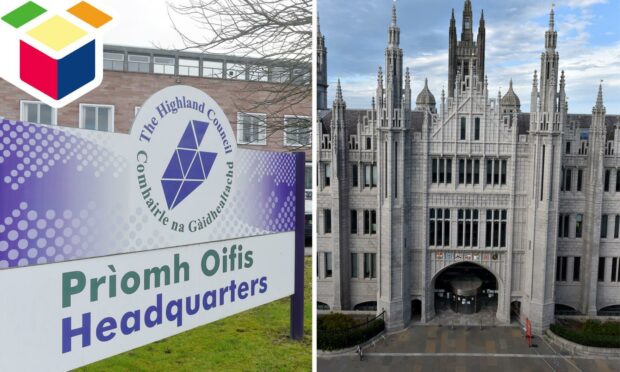With the clock ticking down to Thursday’s vote, David Richardson and David Groundwater of the Federation of Small Businesses set out what they want council elections to deliver for small firms in the north and north-east.
If you run a small business, have you given any thought to Thursday’s local authority elections?
No? Well perhaps you should, for councils are the big beasts of Scotland’s local economies, and who gets in will help determine what your council does and how it spends its/your money.
Right now, the number-one priority has to be kick-starting local economies after the dark days of the pandemic.
‘Many businesses are in a bad way’
With the Russian threat, weak world trade and travel, inflation, shortages of goods and staff, and uncertain consumer demand, many businesses are in a bad way.
Indeed, our latest Federation of Businesses Scotland (FSB) research, undertaken in March and April, found the average Scottish small and medium-sized enterprise is less optimistic now than a year ago.
North and north-east firms may be down but they certainly aren’t out.
Given proper support, they can and will adapt and survive, and much of that support must come from their local councils.
FSB Scotland has produced a series of election manifestos called The Power of Local, in which we list some low-cost, high-impact measures new councils can adopt to really help their businesses, economies and communities.
First up, there’s the immense spending power of our councils, both in purchasing goods and services for their own use and in the personal spending of their staff.
We are asking councils to increase the value of goods and services they buy locally by a modest 2% per annum.
Taking the Highlands as an example, that would see an additional £5.8 million pumped into the local economy in year one.
Local authorities in The Press and Journal area employ more than 50,000 people.
Their wage bills are eye-wateringly large – about £335m in the Highland Council area alone.
For the past two years most council staff have been working from home, making it far harder for them to buy goods on high streets and much easier to buy them online.
We call for councils to return staff to their offices urgently to give our city and town centres a significant financial boost.
While on this subject, we also want them to protect vitally important but vulnerable city and town centres by blocking out-of-town developments for the next five years, unless there is absolutely no alternative.
Councils can do much more to help by creating joined-up online systems in areas such as licensing and non-domestic rates, and by exercising extreme caution when implementing new schemes such as that concerning short-term lets.
And more grant support should be targeted at helping businesses on their journeys to net-zero.
Levelling up
But it’s not just about protecting existing firms. If we want to maintain vibrant, well-balanced and growing populations, we must ensure all parts of our region are seen as go-to places to start up and grow businesses.
That’s as true of Shetland’s north isles as it is of Aberdeen, where the number of registered businesses has fallen by 5.3% since the last council election.
More money should be invested in Business Gateway services to encourage start-ups, offering targeted support for areas with significant untapped potential – such as women-led firms.
If we want to maintain vibrant, well-balanced and growing populations, we must ensure all parts of our region are seen as go-to places to start up and grow businesses.”
Finally, while no-one was prepared for Covid, the commitment from their councils and local businesses was obvious.
Both were able to think outside the box and work together to overcome major obstacles.
It is vital this is not forgotten and that councils continue to strengthen their ties with smaller businesses for years to come.
So, if you were of the opinion Thursday’s elections are not for you, please think again. Who wins could make a big difference to your business.
David Richardson is development manager for the FSB in the Highlands and Islands. David Groundwater has the same role for the business group in the north-east.




Conversation